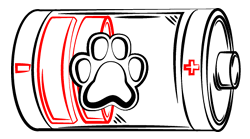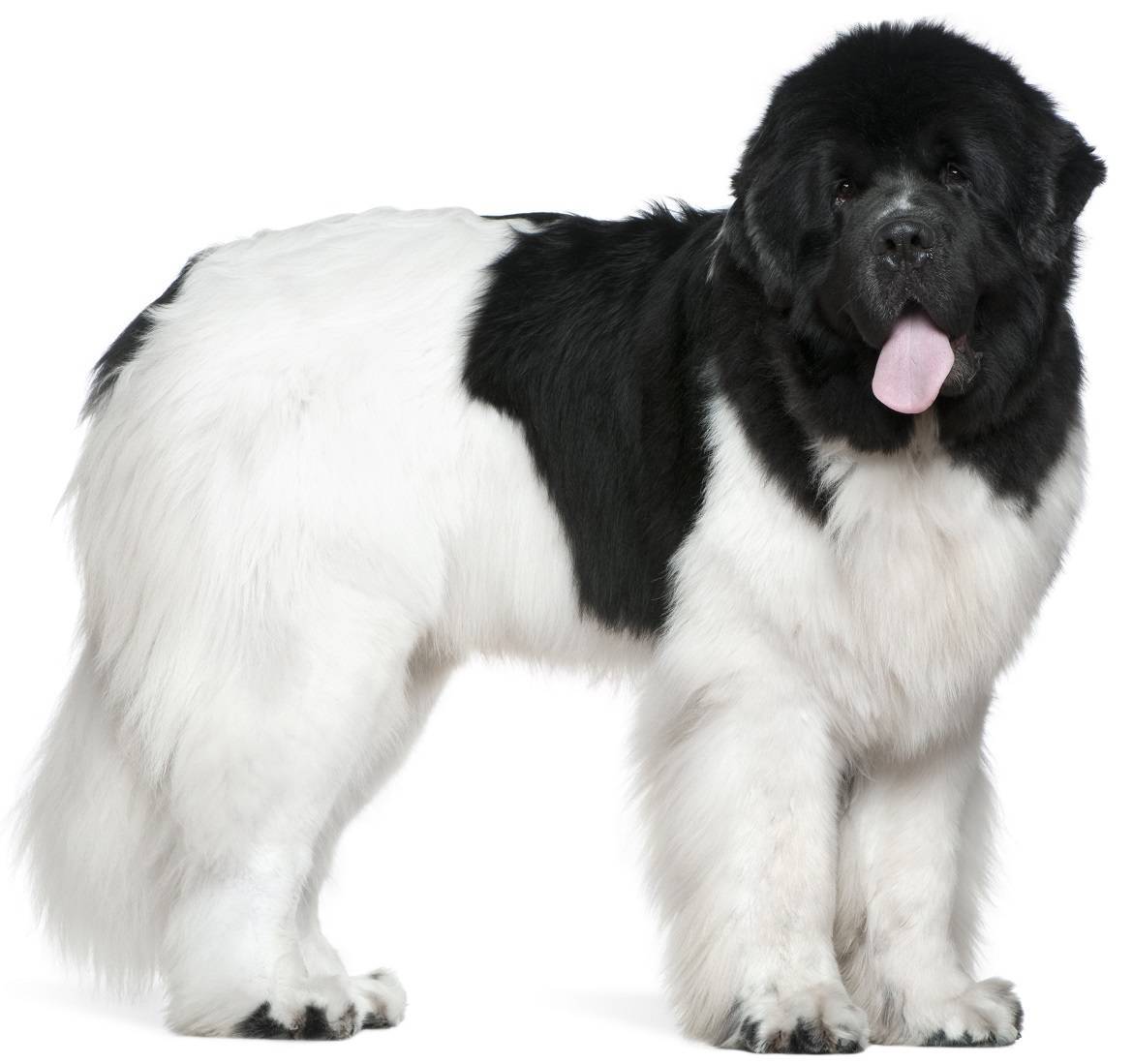
Paws ‘N’ Pups Quickview
Size
| Energy Level
| Trainability
| Paws ‘N’ Pups Rank
|
Characteristics
| Physical Characteristics: Height – Female: 24-26” | Male: 26-28” Weight – Female: 100-120 lbs. | Male: 130-155 lbs. Energy Level: Low – Moderate | Colors: The American Kennel Club recognizes the Newfoundland in the following colors:
|
Health & Longevity
Average Life Span: 8-10 years
The Newfoundland, considered the gentle giant of the dog world, is a large purebred with beginnings in Canada. While most large breeds have a plethora of health problems, the Newfoundland grows at a rate suitable for their bodies, which means fewer health concerns and fewer medical emergencies. To avoid health concerns in Newfoundlands, ask for documentation to prove that your new pup is purebred and complication-free. Reputable, reliable breeders should be able to provide this sort of documentation without a problem.
Two of the main health conditions that affect Newfoundlands are:
Hip Dysplasia
This condition is a birth defect that is caused by a malformation of the bone socket and ball joint in the hips. It results in dislocation, cartilage deterioration, and eventually, very painful arthritis. Symptoms include an awkward gait or obvious limp. Surgery is required to correct this condition.
Sub-Aortic Stenosis (SAS)
Occurring most often in large breeds, SAS is a narrowing of the valves just below the aortic vein. This disrupts blood flow to the heart, making it harder for Newfoundlands to tolerate exercise and most exertion. Symptoms include rapid heartbeat, weakness, constant fatigue, severe weight loss, lack of appetite, and labored breathing. To 100% cure this condition, open heart surgery is required, followed by a lifetime of prescription medication to manage side effects.
Other health concerns that your Newfoundland may encounter include bloat, epilepsy, elbow dysplasia, and cataracts. You can ensure the overall good health and positive, sweet nature of your Newfoundland pup with regular vet check-ups, a nutritious diet, and plenty of exercise. The average Newfoundland lives between 8 to 10 years.
Temperament & Train-ability
Known for their gigantic size and sweet nature, the Newfoundland is an even-tempered, intelligent pup that boasts a natural obedience and eager-to-please manner. He is one of the best big dogs for families, as he is patient and does well with children. However, as with all dogs, you should teach any kids that will be around him how to be kind, respectful, and considerate when spending time with your Newfoundland. He would never bite, but his size could make it harder for him to navigate carefully around smaller children. Always keep a close watch on both your pup and any children around him during interactions.
Newfoundlands are bred to be good-tempered and easygoing, but they can also be very protective of their loved ones. These dogs, because of their size, are intimidating to most people who are unfamiliar with the breed. He is a light sleeper who is always alert and would therefore make a great watchdog for a family at night-time. He rarely barks, but he would alert you with a nudge if he sensed anything suspicious.
If you have other dogs, be sure to socialize them with your Newfoundland from an early age. While these gentle giants are passive, they have a low tolerance for yappy smaller dogs who challenge them for dominance. These big pups are usually gentle and accommodating to other dogs, so a dog park would be a great place for your Newfoundland to get some exercise. Alternatively, let him free in a fenced-in backyard for an hour or two of romping and exploring. If a fenced-in backyard is a no-go, take your Newfoundland for 2-3 long walks per day to keep him active, healthy, and happy.
Newfoundlands are highly intelligent and usually, the smarter the pup, the more difficult it is to train them. However, these dogs are naturally eager to please their loved ones. While training might take a bit of repetition, he will eventually comply with your commands to make you happy. Be consistent, firm, and mild in your training methods. His biggest challenge will be his attention span, as these pups love to pay attention to everything else going on around them. Reward him with meaty morsels when he follows through on your instructions.
Grooming
Newfoundlands are known for having thick, shaggy coats with lots of hair. They are high shedders, which means you should invest in a vacuum and a thick-bristled brush. These pups need their coat brushed daily, sometimes twice, to eliminate loose, excess hair, and keep their overall coat healthy and tidy.
Because of their size, a full-grown Newfoundland might be difficult to bathe in your bathroom. You could always take him outside to bathe him when the weather is warm. Simply grab a bottle of gentle dog shampoo and a water hose. Or, take him to a professional groomer once a month for a spa treatment. These services usually include a bath, brush, hair trim, toenail trim, teeth brush, and ear cleaning.
Diet
The Newfoundland needs plenty of hearty, nutritious kibble to energize his large body and maintain good health. These pups, generally, need 4-5 cups of dry, good-quality dog food per day, split into 2-3 meals. The quality of the dog food matters! Invest in a wholesome kibble with lean meats, whole grains, and vegetables as part of the ingredients. He should have lots of protein, complex carbs, and good fats to fuel his appetite and keep him satisfied.
Looking for a Newfoundland?
 Find A Newfoundland Breeder |  Newfoundland Puppies For Sale |  Adopt A Newfoundland |
Cost
Newfoundland puppies are popular because of their adorable sagginess and overall playful, sweet demeanor. However, not everyone has the time or the space to keep a Newfoundland, so breeder prices will reflect the fluctuations in purebred demands. On average, you can expect to spend between $800 to $1,500 for a Newfoundland puppy.
You could always opt for an older Newfoundland pup from an animal shelter or a rescue group. The average adoption fee for the dog alone is between $75 to $250, but that depends on state and county regulations. There are also several variables to consider, like the cost of vaccinations and a spay or neuter, which could raise the average adoption price to $500.
Paws ‘N’ Pups Ranking
Paws ‘N’ Pups ranks every breed out of 4 with 1 being easiest to integrate into your life and 4 being the toughest – The lower the ranking the better.
Ranking takes into account a few basic factors including cost, skill level needed, high vs low maintenance and how critical regular training is to success. The average Newfoundland ranks a 1.5 on the integration scale – mainly due to his size. It could be a challenge to accommodate such a large pup in your home, however his overall sweet nature, obedient manner, and charm with children makes him the epitome of an awesome family pet.
Breeds Similar To Newfoundland
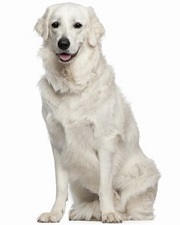 Kuvasz | 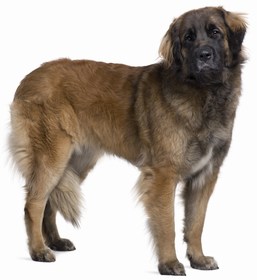 Leonberger | 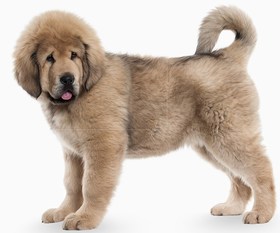 Tibetan Mastiff | 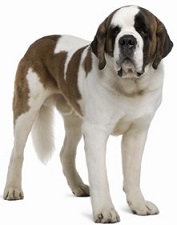 Saint Bernard |


